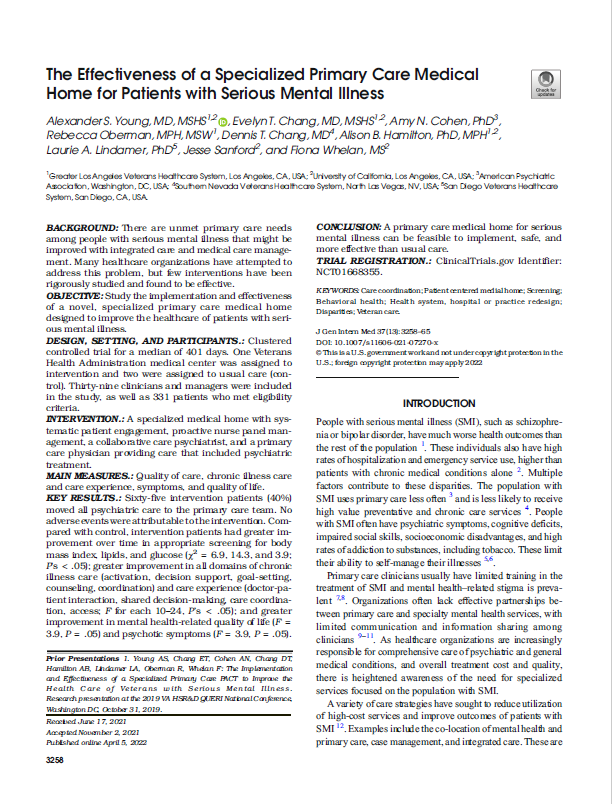Headline
Primary care medical home improved use of preventive services, chronic illness care, care experience, psychotic symptoms, and mental health-related quality of life for people with serious mental illness (SMI).
Context
People with SMI typically have worse health outcomes and higher rates of emergency service use than people with chronic medical conditions but without SMI. To improve health care services and outcomes for this population, the authors of this study implemented and evaluated a primary care medical home in the Veterans Health Administration (VA), referred to as SMI “Patient Aligned Care Team” (PACT). SMI PACT is a collaborative care approach that is staffed by a co-located interdisciplinary care team, including a primary care provider, a consulting psychiatrist, and a nurse care manager.
Findings
Compared to participants enrolled in usual care, patients assigned to the SMI PACT intervention saw improvements in use of preventive services, chronic illness care, care experience, psychotic symptoms, and mental health-related quality of life after 12 months. However, there were no effects on patient activation, most psychiatric symptoms, or physical health-related quality of life.
Takeaways
Other providers and health systems could apply lessons from this primary care medical home model to improve care for people with serious illness. Local context should be considered, as this was conducted in the VA setting.

